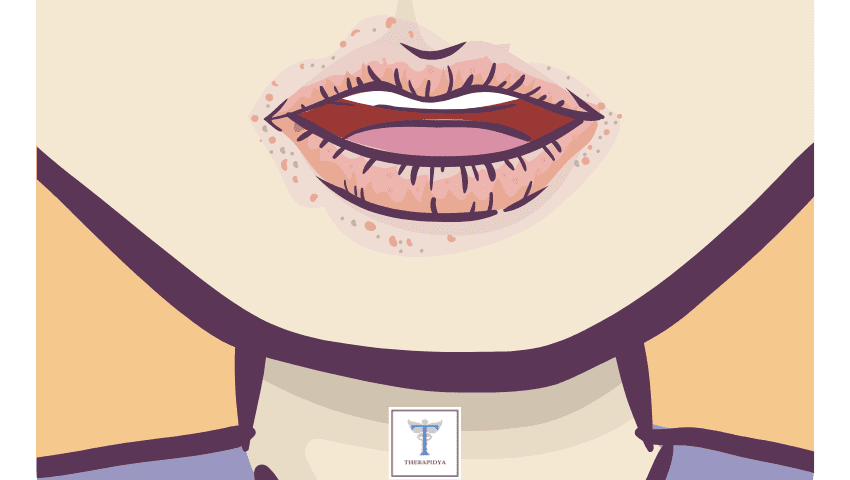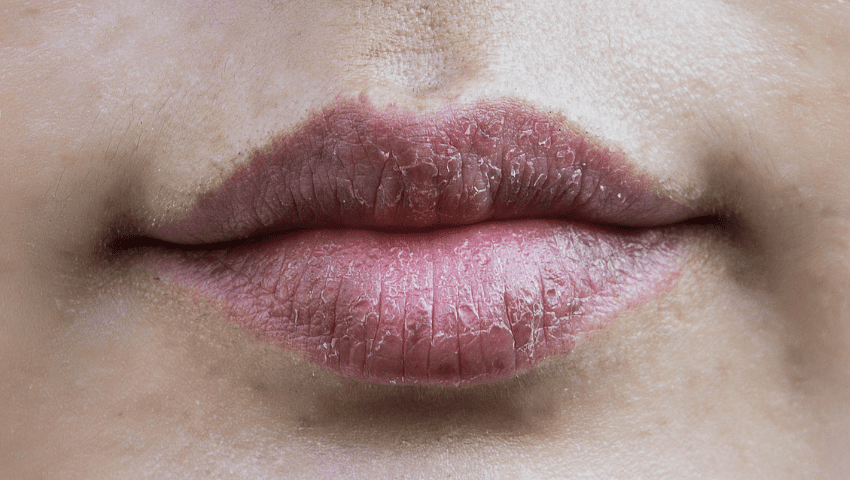Dry Mouth: Everything You Need to Know .. 2023
Dry mouth is a concerning condition that can have a negative impact on one’s quality of life. What are the causes, symptoms, and treatment options for dry mouth?
Dry mouth is a condition in which the mouth produces little or no saliva. This is a bother because saliva plays an important role in tasting and digesting food, as well as washing food particles from the teeth, balancing the acidity level in the mouth, and moisturizing it.

Symptoms of Dry Mouth
Dry mouth causes a slew of vexing symptoms, including:
- Having a thirst
- Due to a lack of saliva, the skin around the mouth becomes dry
- Lips that are chapped and cracked
- Wounds around the mouth’s edges
- roughness of the tongue and dryness of the tongue
- Due to a lack of emollients produced by saliva, swallowing and speaking are difficult.
- I have bad breath
Causes of Dry Mouth
Dry mouth feeling can be caused by a variety of factors, including:
1. Medicines
Dry mouth feeling is a common side effect of many prescription and nonprescription medications including:
- Medications to treat depression and anxiety.
- Medicines to treat allergies and colds, such as: antihistamines and decongestants (Zyrtec, Allegra, Claritin) (Afrin, Sudafed, Vicks Sinex)
- Medicines to treat obesity.
- Acne and acne medication.
- Epilepsy medications.
- Medicines to treat high blood pressure (Angiotensin-converting enzyme (ACE) inhibitors, Calcium channel blockers, Beta-blockers)
- Heart rhythm medications
- Diarrhea and nausea medicines.
- Urinary incontinence medications.
- Asthma medications such as some bronchodilators (Albuterol, Flonase Allergy Relief, Advair Diskus)
- Muscle relaxants and sedatives.
- Alzheimer’s disease medications (Aricept (Donepezil), Exelon (Rivastigmine), Razadyne (Galantamine))
2. Some Treatments
Dry mouth can be caused by some medical treatments such as radiation therapy against certain types of cancer that may damage the saliva-producing glands.
Dry mouth with braces and chemotherapy also can be seen.
3. Neurological Damage
Dry mouth may be caused by nerve damage from a variety of causes, such as an injury to the head or neck.
Where some nerves transmit messages between the brain and the salivary glands, and if they are damaged, they lose the ability to send signals to the salivary glands to produce saliva.
The lack of saliva makes it difficult to taste food, because saliva carries food flavors to nerve cells distributed in the throat and mouth.
4. Medical Conditions
Dry mouth can be caused by a medical condition known as Sjogren’s syndrome.
It is an autoimmune disease, during which white blood cells lymphocytes attack the lacrimal and salivary glands in the body, resulting in dry eyes and dry mouth.
Dry mouth is also common among both diabetics and HIV patients.
5. Smoking
Smoking causes a feeling of dry mouth.
Also, some habits that accompany the smoking process, such as drinking sources of caffeine and alcohol, cause dry mouth.
Also read: Quitting Smoking – The Ultimate Guide .. 2022
6. Nerve Damage
Dry mouth can be the result of nerve damage in the head and neck area from an injury or surgery.
7.Dehydration
Conditions that lead to dehydration, such as: fever, excessive sweating, vomiting, diarrhea, blood loss, and burns, can cause dry mouth.
Complications of Dry Mouth
If there is not enough saliva and a dry mouth develops, this can lead to:
- Increased plaque layer, tooth decay and gum disease
- mouth ulcers
- Yeast infection in the mouth
- Sores or cracked skin in the corners of the mouth or cracked lips
- Malnutrition due to problems with chewing and swallowing

Dry Mouth Diagnosis
The doctor or dentist is likely to examine the patient’s mouth and review their medical history. Blood tests and imaging of the salivary glands may also be done.
The most prominent diagnostic methods include the following:
Sialometry
This is a simple procedure that measures the rate of saliva flow. Collecting devices are placed over the duct openings in the salivary glands, then saliva production is stimulated with citric acid.
Salivary Duct Imaging
It is a radiographic examination of the salivary glands and ducts that may be useful in identifying stones and masses of the salivary glands.
Biopsy
A small sample of salivary gland tissue is often used to diagnose Sjogren’s syndrome. If a malignancy is suspected, a doctor may also order a biopsy.
Many doctors point out that often although the patient complains of severe dry mouth, the oral mucosa appears wet, and often it may be the opposite where the oral mucosa appears to be dry but the individual does not complain of symptoms of dry mouth.
Dry Mouth Treatment
Treatment depends on the cause of the dry mouth. If certain medications are the cause, your doctor will adjust the dose or change the medications that cause dry mouth.
The doctor may also recommend some products to moisten the mouth, which can include mouthwashes, artificial saliva or emollients to soften the mouth.
In the case of severe dry mouth, the doctor may do one of the following:
- Prescribe drugs that stimulate saliva production
- Recommendations to protect and prevent cavities such as fluoride molds that are filled with fluoride and worn on the teeth at night. Your doctor may recommend a weekly chlorhexidine rinse to control cavities
- Tips for dealing with dry mouth
- You should visit your dentist or family doctor to find out the cause of dry mouth
However, there are some self-care steps that can be taken to relieve dry mouth, including:
- Teeth cleaning: Care must be taken to brush the teeth at least twice a day with fluoride toothpaste, and a good quality toothbrush must be used.
- Use of mouthwash: Mouthwash with fluoride should be used to clean between the teeth.
- Use of dental floss: Be sure to clean the teeth with dental floss.
- Drink water: Try to drink plenty of water to keep the mouth hydrated and avoid sugary drinks that contain caffeine or acidic drinks.
- Avoid smoking and alcohol: Smoking may be the cause of dry mouth, so be sure to avoid it.
- Chewing sugar-free gum: Chewing sugar-free gum or sugar-free candy helps stimulate the flow of saliva.
- Use of saliva substitutes: Saliva substitutes temporarily relieve the problem for some people.
- Use a moisture mist: The mist diffuser device helps reduce symptoms of dry mouth.
- Refer to the doctor: The dentist must be informed of the medications that the patient is taking regularly, as this information helps in diagnosing the causes of the decrease in the amount of saliva and receiving appropriate treatment.
This post is also available in: Dansk (Danish) Nederlands (Dutch) Français (French) Deutsch (German) עברית (Hebrew) Italiano (Italian) Polski (Polish) Română (Romanian) Русский (Russian) Türkçe (Turkish) Español (Spanish) Български (Bulgarian)






